“This Play Is About A Very Sensitive Topic”
- Par Monica NKODO
- 05 Sep 2019 12:38
- 0 Likes
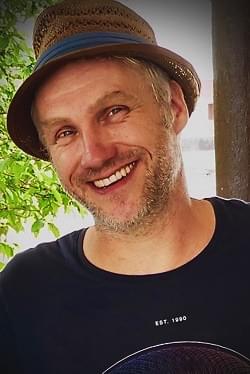
Jens Vilela Neumann, Director of the play “Kamerun: Past, Present, Future” performed in June 2019 in Yaounde, Cameroon.
You were in Cameroon to present the play, “Kamerun: Past, Present, Future”. How did you come about this story on German colonisation of Cameroon?
Germans do not remember much of their colonial history in Africa. They don’t even want to think about it. They are not aware of it. If you interview people in the streets of Germany, I guess 90 per cent of them will not even know any former German colony in Africa. They forget that we were in Tanzania, Cameroon or even in Togo and Namibia. I want to focus on countries suffering from German colonial past. But when I visited Cameroon, I discovered that many people look back to the German colonial era in a positive way. They told me that Germans built streets, roads, the railway, the city structure. So I started to research and I found that it was true; that Cameroon is the way it is today thanks largely to the Germans. But what people forget is the price that was paid because Germans did not achieve all this alone. They needed local people to help, so they forced them to build bridges and roads. They faced harsh punishment if they did not work hard. It was so harsh that present day Germans are shocked when they hear what was done in Cameroon. I wanted to do a project where both countries can learn. Cameroonians will learn more about the forgotten past and Germans will revisit their colonial past in Cameroon and see that many wrongs were done – which should never be repeated. Was it your wish to say sorry or that of the German people? As an artist, I will say yes. I think we should apologise to all our former colonies – be they the French, English, Belgians and Portuguese. I know the time was different. At the time, there was war in Europe, but the way they behaved in Africa was not right. They abused the weaknesses of local people and forced them into slavery. They could have done business, but they engaged in forced labour, punished the people and used them to fight European wars. So they fought wars that were not theirs in which many people died. As an artist, I strongly believe we need to say sorry because it was not fair, though it is hard to say sorry. We are proud, we don’t want to say sorry but sometimes we need to say it. I don’t know if politicians can say sorry, but I think it is good to say sorry and I think we have to apologize to restart our relationship, to look at each other in the face and cooperate better.
How did you succeed to manage the text by Juvenil Assomo?
It was a very long journey because we started only with the general topic of colonisation. When I came to Yaounde for the first time half a year ago, everybody told me to be very careful. That it is a very sensitive topic and that many people will feel offended. So I looked for a good script writer. With Juvenil, we met many experts such as historians and archaeologists and did interviews. We settled for five historical accounts representing different views about colonisation. For example, King Njoya collaborated with the Germans. He thought it was good for Germans to be in Cameroon. Maria Mandessi Bell represented Ngosso Din and Manga Bell who said there was nothing good in colonisation. Martin Paul Samba was a great personality. I know he is a national hero, but historical facts show that he worked for long for Germans and even killed his own people before changing his mind at the end. So everybody has a different view on history and that is the great thing about theatre. When we put all these people on stage, we have a conflict in what they believe. This is all about theatre; creating conflict and making the audience to think and choose for themselves who to believe. There were fears that we will offend many people, but it did not happen.
How challenging was it to bring these texts to life on stage?
It was a bit difficult because the story has many dates, names and references to historical happenings. We wanted to entertain, make people laugh and enable Cameroonians and Germans understand the story. Our target is ordinary people and not only intellectuals - people in the street, people like my mother who knows nothing about Africa. I want everybody to come to the...
Cet article complet est réservé aux abonnés
Déjà abonné ? Identifiez-vous >
Accédez en illimité à Cameroon Tribune Digital à partir de 26250 FCFA
Je M'abonne1 minute suffit pour vous abonner à Cameroon Tribune Digital !
- Votre numéro spécial cameroon-tribune en version numérique
- Des encarts
- Des appels d'offres exclusives
- D'avant-première (accès 24h avant la publication)
- Des éditions consultables sur tous supports (smartphone, tablettes, PC)






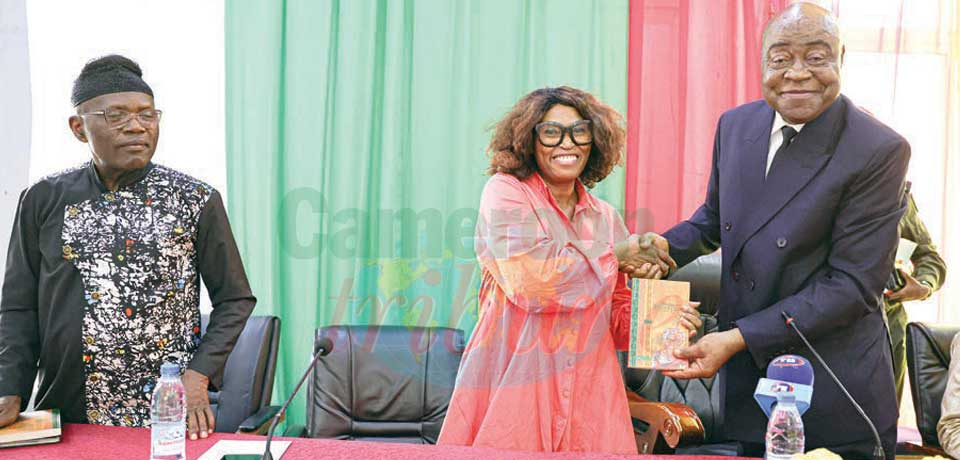
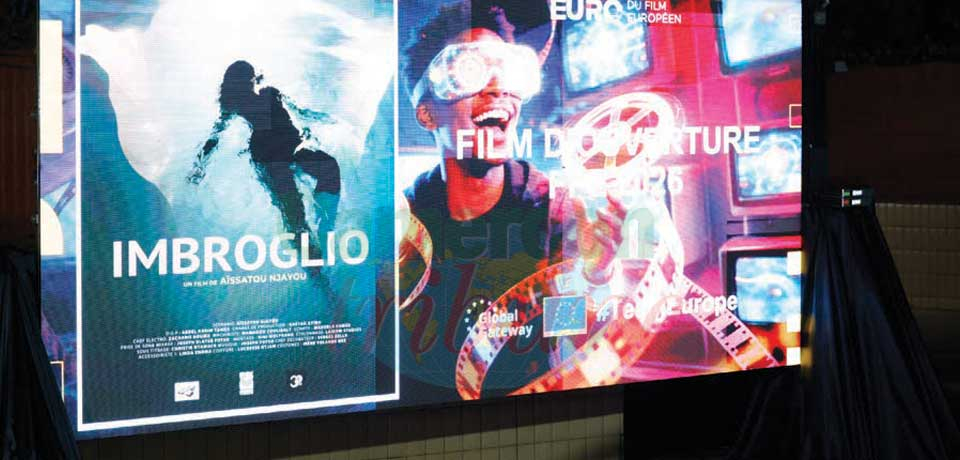
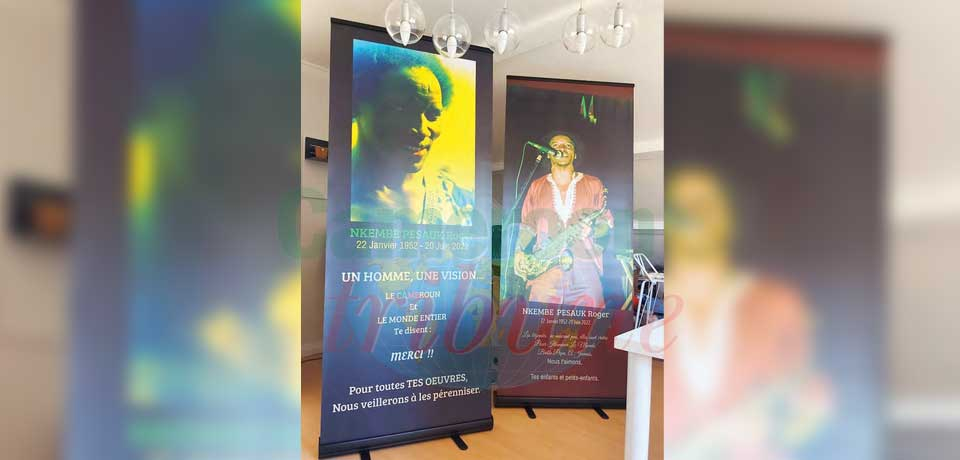
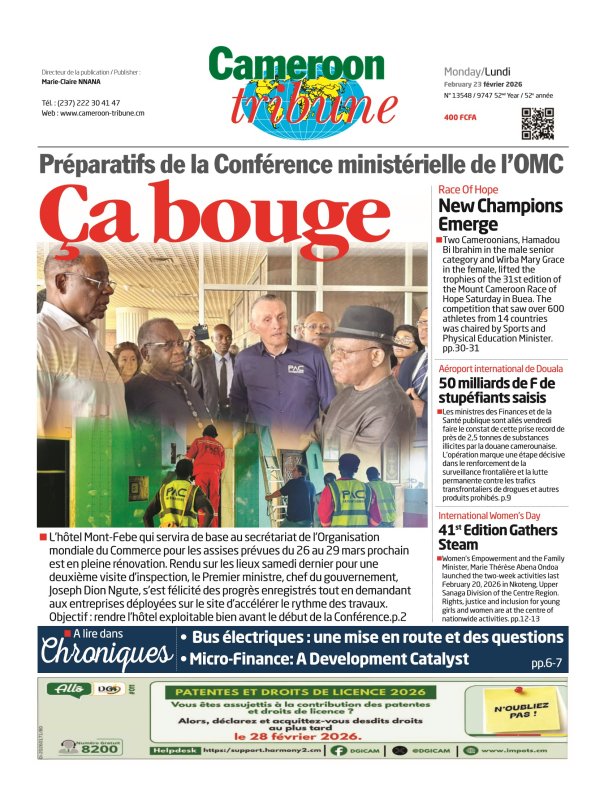




Commentaires